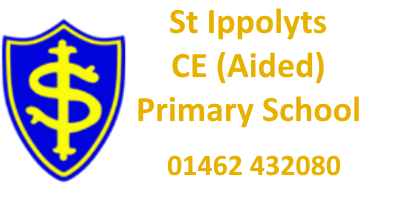Reading
Reading should be a pleasurable experience for all children. The early stages of learning to read are crucially important and children need to be supported at school and home alike. We believe that reading can open doors for our pupils and can help them to gain experiences, improve language and vocabulary skills and stimulate their imaginations. We aim to create confident readers who have good independent learning skills and develop a range of interests through reading.
Accessing decodable books
At St Ippolyts School all of our children are lucky enough to access Pearson’s Bug Club, an online reading system where children can access fully decodable books at home and on the go, electronically. As well as this, we also offer paper/ ‘real’ books from the Bug Club series for children to take home with them. Each book-band is carefully selected to meet your child’s needs, so that they can decode the text using their phonics skills. Children have a range of genres to select from including fiction and non-fiction texts, poetry and even comics featuring fun characters, traditional tales and even the BBC alphablocks!
Our School Library
To extend children’s reading opportunities we have a well-stocked school library with hundreds of books available for loan in a wide range of genre, both fiction and non-fiction. Children are encouraged to choose a library book each week to take home and share with their adults and read for pleasure. Our school has a huge selection of books to promote multicultural diversity and inclusion and these are available for children of all ages.
Writing
Children are encouraged to write for themselves from the start of school; it becomes a vital part of their communication skills. Children write for many purposes and in virtually all areas of the curriculum. There are many opportunities for creative writing in the forms of poetry and narrative in addition to learning about and writing in a wide range of non-fiction texts, including recounts, reports, explanation and instructional writing. We use a wide range of cross curricular opportunities to enhance children’s writing experiences to ensure they learn to write for an extensive variety of purposes and audiences.
As children progress, they learn to spell more difficult words through a range of approaches, starting with phonological awareness (phonics). They learn how sounds are blended to create words and how sentences and paragraphs are put together. As their writing develops they will be expected to draft and edit their writing and are taught to use a dictionary and thesaurus to widen their vocabulary.
Your child’s teacher will talk with you about your child’s progress in all elements of English. Each child will have individual targets which will be shared with you at Parent Consultation Evenings.
We believe it is important that children are involved in setting their own targets for development so that they know how to improve their work in order to progress.
Phonics
Our school uses Bug Club Phonics; one of the DfE’s approved phonics teaching programmes. This programme follows the order of Letters and Sounds and means that our phonics programme links to our 134 100% decodable reading books in KS1, so that children can apply their phonic skills when reading.
Phonics is taught each day in KS1 with fast paced lessons using the Bug Club slides, videos and activities. Teachers assess phonics regularly and at the end of Year 1, each child carries the statutory Phonics Screening test.
For more on Bug Club phonics, have a look at the following link or watch the video: https://youtu.be/0dCRWLLNXPo
C
Below are a range of documents to download. These include the recommended books lists given out at the recent Reading Evening for Parents.



